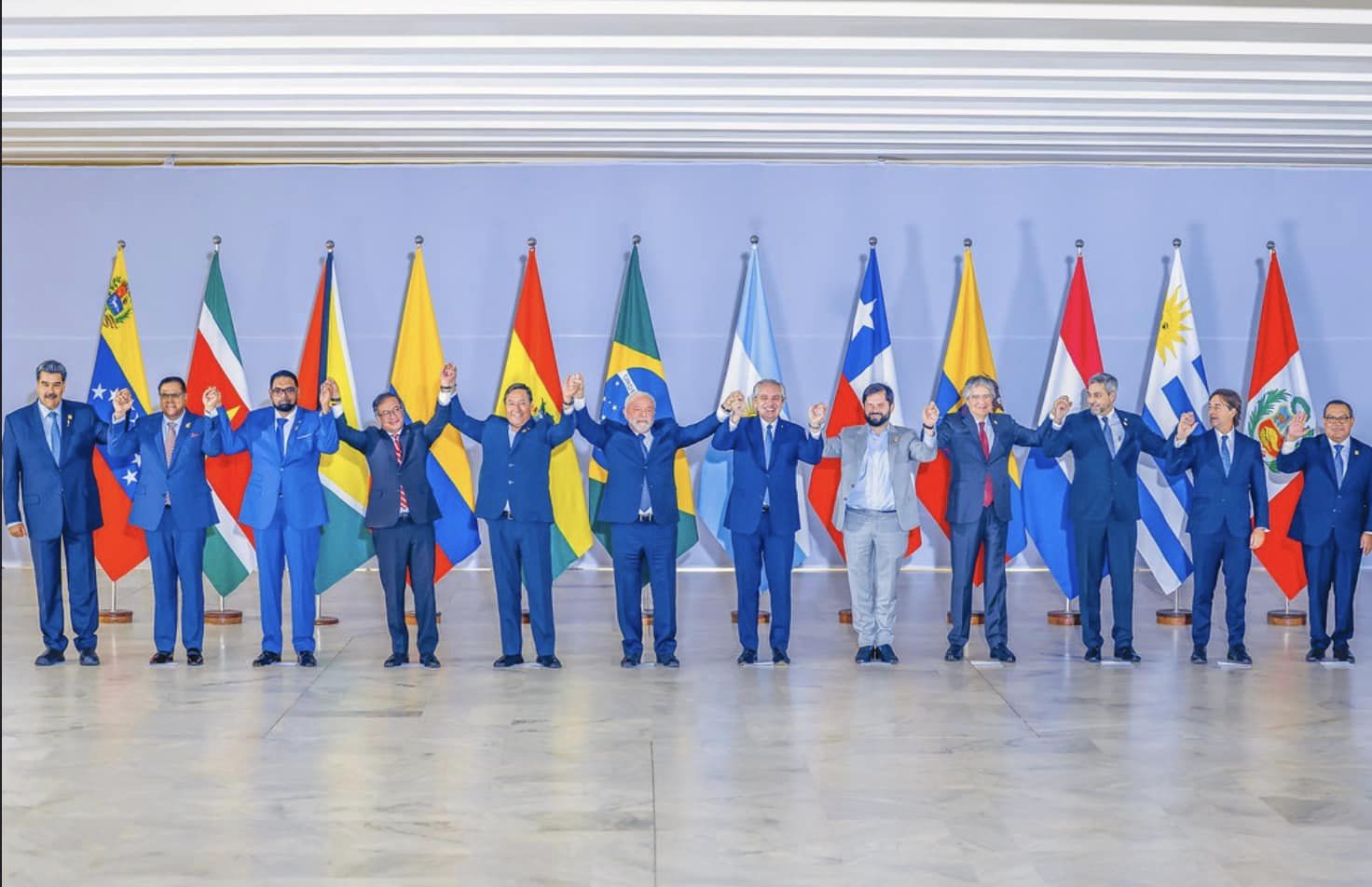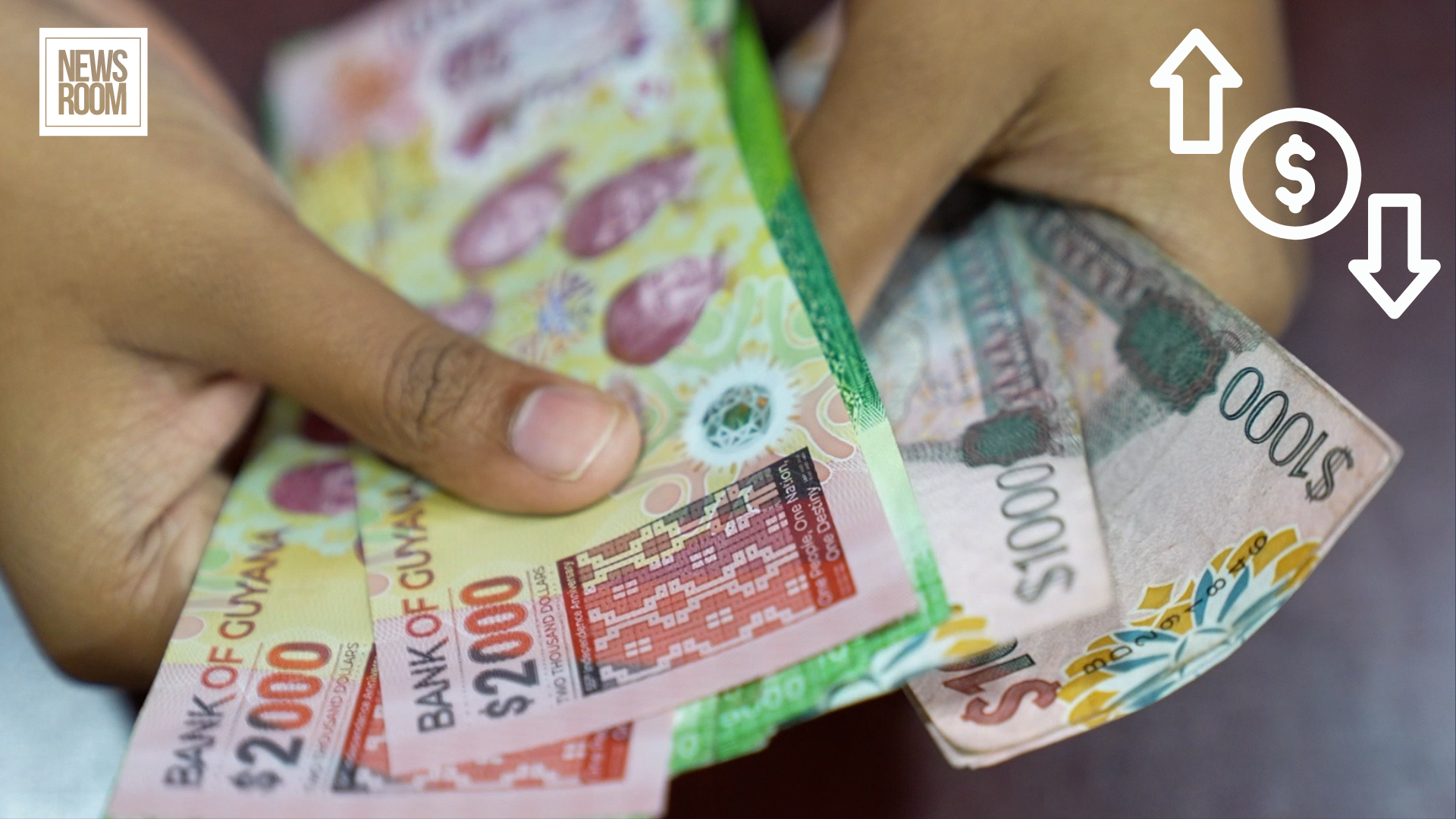
South America is among the regions of the world badly affected by several global problems including food insecurity and climate change and Guyana’s President Dr. Irfaan Ali believes the continent would be better positioned to respond to challenges with close relationships among its nations.
“Today, we are living in a much different and more complex global environment where the issues of food security, climate security, and energy security are paramount.
“In this region, in South America, we have all the natural assets to offer global leadership in all three of these areas,” President Ali told fellow leaders at a summit in Brazil.
The President joined other continental leaders and representatives in Brazil for that summit on Tuesday. There, Brazilian President Luiz Inacio Lula da Silva touted the revival of the regional bloc previously known as the Union of South American Nations, or UNASUR.
As he pushed for greater South American integration, President Lula promoted the idea of creating a regional trade currency.
Guyana’s Head of State welcomed these integration talks, noting prior meetings yielded fruitful partnerships including efforts to bridge northern Brazil with Guyana, Suriname, Venezuela and Colombia.
Guyana is already linked to Brazil via the Takutu bridge in Region Nine (Upper Takutu- Upper Essequibo).
Dr. Ali added that these talks are necessary because of the three major challenges the region is faced with. He also pointed out that these are challenges the Caribbean faces and closer relationships between the Caribbean and South American countries could prove beneficial.
“The Caribbean has a food import bill of US$10 billion annually for such a small population and we have all this production of food in Brazil, for example.
“Northern Brazil can easily be integrated into the supply and logistics frame, but we have not been able to do it,” the President.
Increasing food production and trade with northern Brazil has been one of the solutions long-touted by President Ali in his role as lead Head of State in the Caribbean Community (CARICOM) quasi-cabinet.
And underpinning all other challenges, the President reasoned, is the worsening threat of climate change.
While many global players have called for a reduction in fossil fuel production to slow climate change, Guyana’s President pointed out how the country is trying to balance new oil production with its long standing environmental stewardship.
So he contended that the South American nations must be able to share a common but just position on climate change and energy security.
If the countries are able to deepen integration efforts, Dr. Ali believes the people of the continent will be much better off.
At the end of the summit, a statement was issued on what the leaders agreed to.
It noted, “… leaders agreed that regional integration should be part of the solution to the common challenges of building a peaceful world, strengthening democracy, promoting social and economic development, fighting poverty, hunger, and all forms of inequality and discrimination, promoting gender equality, managing migration in a safe, orderly and regular manner, tackling climate change, including through innovative financing mechanisms for climate action, fostering ecological and energy transition through clean energy, strengthening health capacities and combatting transnational organised crime.”
Increasing trade among nations and establishing a high-level group to draft a roadmap for regional integration were also agreed to.











